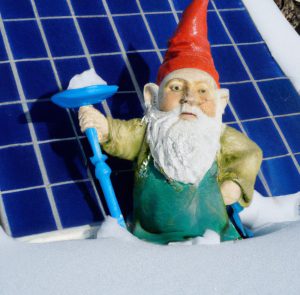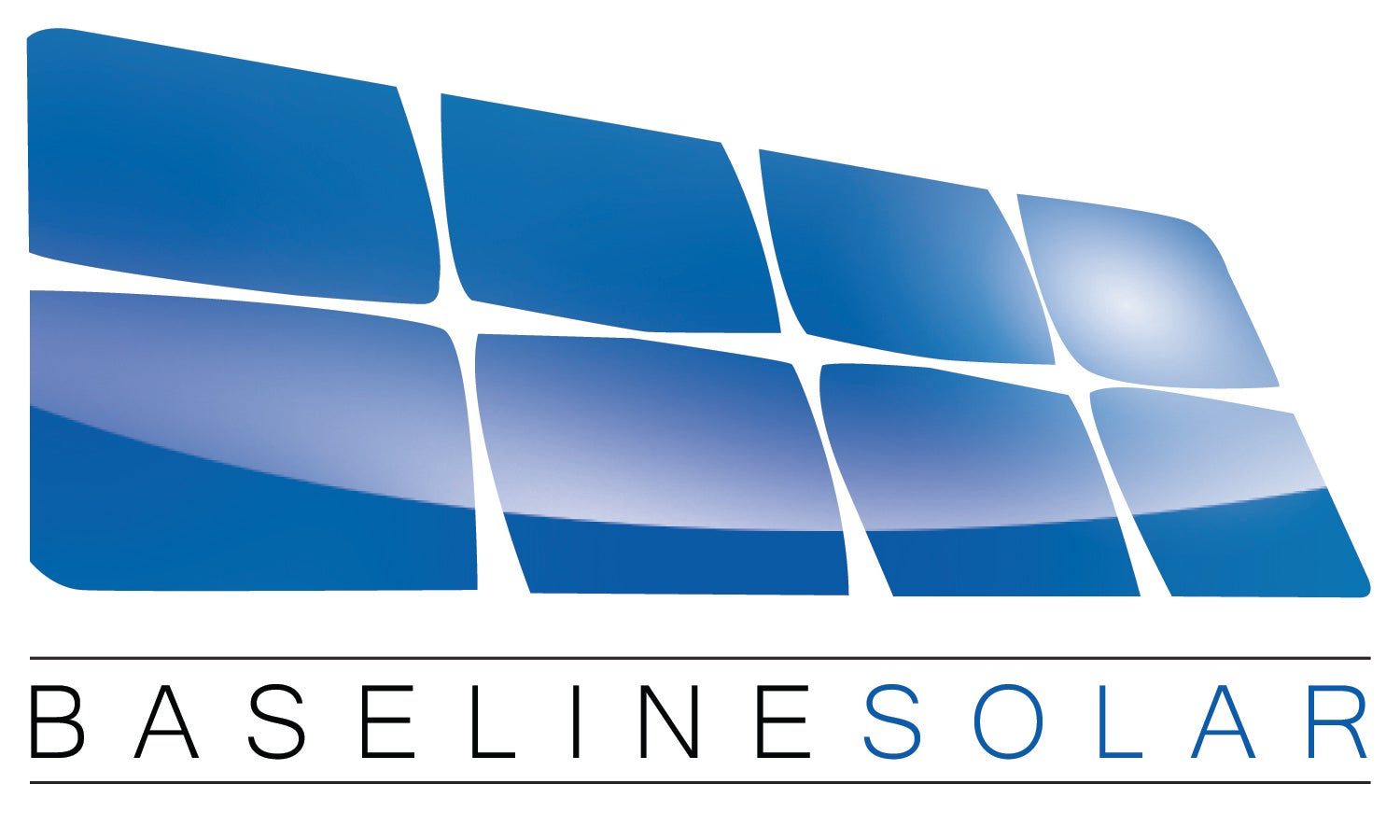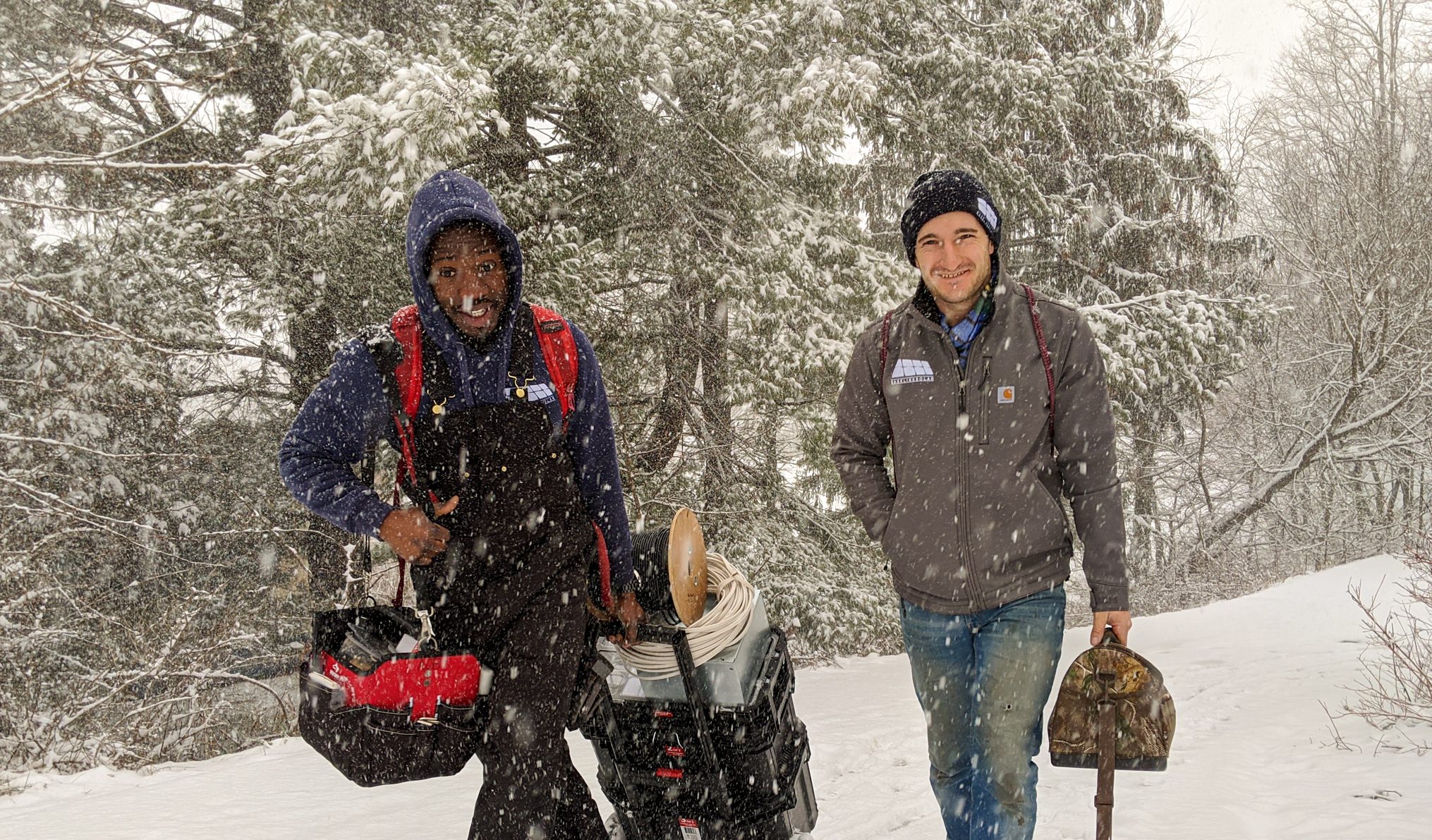One question we get every winter is, “does snow have any effect on my solar panels?” To help shed some light on this topic 😉, please take a minute (or seven!) to watch the following video starring Baseline co-owner and business manager Patrick Feucht! He’ll walk us through the five things he really wants us to know about snow and its effect on solar panels. He’ll also use the roof-mounted array at his house to demonstrate how to effectively clear snow from solar panels, PLUS a quick trip to a neighbor’s house to show the nuances of clearing snow from ground-mounted panels. Please, have a watch!
Too Long Didn’t Watch? Here’s a synopsis of the 5 things you should know:
#1 – Snow does not hurt solar panels
They are designed to withstand the amount of snow that we get in our geographic area (southwest Virginia) and it does not damage them.
#2 – They won’t produce as much energy
A dusting won’t affect production, but if there’s a heavier amount on the panels, there is much less light getting to them, so they will produce much less power than they normally would.
#3 – Snow can slide off the solar panels (quickly!)
Since solar panels have a smooth, glass surface, snow will typically slide off the panels once it’s warm enough for the snow to melt. This creates a tiny avalanche that can cause damage to whatever is in its fall path (cars, HVAC equipment, walkways, garden gnomes, etc). Let us install snow guards to protect these precious assets!

#4 – You can clear your solar panels
This is not necessary, but if you decide to clear your solar panels of snow, you should use something soft like a bristled push broom, a plastic snow scraper, or a tool called a Snow Pro (available at local hardware stores). Whatever you do, do NOT use anything metal! The panels have a glass surface, and metal can and will scratch and potentially break the surface of these panels.
#5 – Overall, there is a minimal loss in production from snow
Over the course of an entire year, in our geographic area, the energy loss from snow covering panels is less than 1%, so don’t fret!

